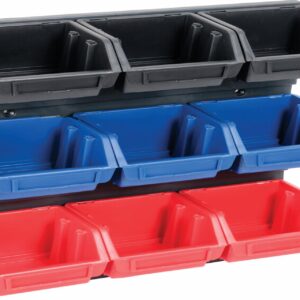In the dynamic landscape of manufacturing, optimizing production isn’t just a desire; it’s a necessity for staying competitive. Enhanced efficiency not only streamlines operations but also reduces costs, improves product quality, and fosters innovation.
To thrive in this fast-paced industry, embracing strategies that boost manufacturing efficiency is crucial. Here are key methodologies that can revolutionize production processes and drive significant improvements in efficiency.
Lean Manufacturing Principles
Efficient manufacturing is essential for staying competitive globally. Implementing Lean principles like Kaizen, 5S, and Just-in-Time minimizes waste and boosts efficiency. To fully leverage Lean’s potential, partnering with a lean manufacturing consultant is beneficial.
These experts offer insights to optimize processes, resulting in a leaner, more adaptable operation that swiftly meets market changes and customer needs, offering a substantial return on investment.
Integration of Automation and Robotics
Automation technologies and robotics play pivotal roles in modernizing manufacturing processes. By automating repetitive and labor-intensive tasks, manufacturers can increase output, reduce errors, and enhance overall productivity. This integration frees up human resources for more complex and creative endeavors.
Strengthening Supply Chain Management
In today’s fast-moving business world, managing supply chains efficiently is super important. Businesses that keep materials flowing smoothly, avoid delays, and save money are more likely to succeed.
Building good relationships with suppliers, using smart inventory systems, and keeping logistics smooth are key ways to do this. Using these tools helps companies stand out, serve customers better, stay ahead, and succeed in the long run.
Predictive Maintenance Techniques
Leveraging predictive maintenance tools empowered by IoT sensors and data analytics can prevent machinery breakdowns. By foreseeing potential issues, companies can schedule maintenance tasks in advance, minimizing downtime and enhancing operational efficiency.
Continuous Employee Training and Empowerment
Investing in employee training is an investment in the future of any organization. It’s important to offer training and development programs that help employees improve their skills and knowledge. These programs not only benefit the individual employee but also contribute to a culture of innovation and efficiency.
By empowering and training their employees, organizations are creating a workforce that is more engaged, productive, and creative. This, in turn, leads to process improvements and innovative solutions to business challenges.
Optimal Equipment Arrangement and Workflow
Strategically organizing machinery and production lines can significantly impact productivity. By minimizing bottlenecks, reducing material handling, and optimizing workflow, manufacturers can achieve smoother operations and faster throughput.
Cultivating a Culture of Continuous Improvement
Encouraging a culture of continuous improvement empowers employees to identify inefficiencies and propose solutions. When everyone in the organization is involved in seeking better ways to operate, it leads to sustained and scalable improvements.
Robust Quality Control Measures
In the world of manufacturing, quality control is of the utmost importance. Without effective systems in place, defects can go unnoticed, and production costs can skyrocket. Implementing stringent quality control systems is the key to early defect detection.
By identifying and rectifying issues before they escalate, manufacturers can reduce the need for rework and scrap, leading to cost savings and an optimized production process. Moreover, implementing such systems promotes consistent high-quality output, instilling confidence in clients and bolstering a manufacturer’s reputation in the industry.
Data-Driven Decision Making
Utilizing data analytics not only provides a clear understanding of production processes but also identifies areas that require improvement. With the ability to access and analyze vast amounts of data, manufacturers can make informed decisions that positively impact production efficiency.
Data-driven decision-making allows manufacturers to optimize production processes, increase production capacity, and reduce any unnecessary downtime.
Embracing Energy Efficiency Initiatives
Adopting energy-efficient practices not only reduces environmental impact but also lowers operational costs. From utilizing sustainable resources to optimizing energy consumption, these initiatives align with both economic and ecological goals.
In Conclusion
Optimizing production for enhanced efficiency is an ongoing journey rather than a destination. Embracing these strategies empowers manufacturers to adapt, evolve, and thrive in an ever-changing industry landscape. By prioritizing efficiency, manufacturers can achieve higher productivity, reduced costs, improved quality, and sustainable growth.
By amalgamating these strategies and customizing them to suit specific manufacturing environments, companies can pave the way for a more efficient, innovative, and competitive future. The key lies in continuous evaluation, adaptation, and a relentless pursuit of excellence in production processes




